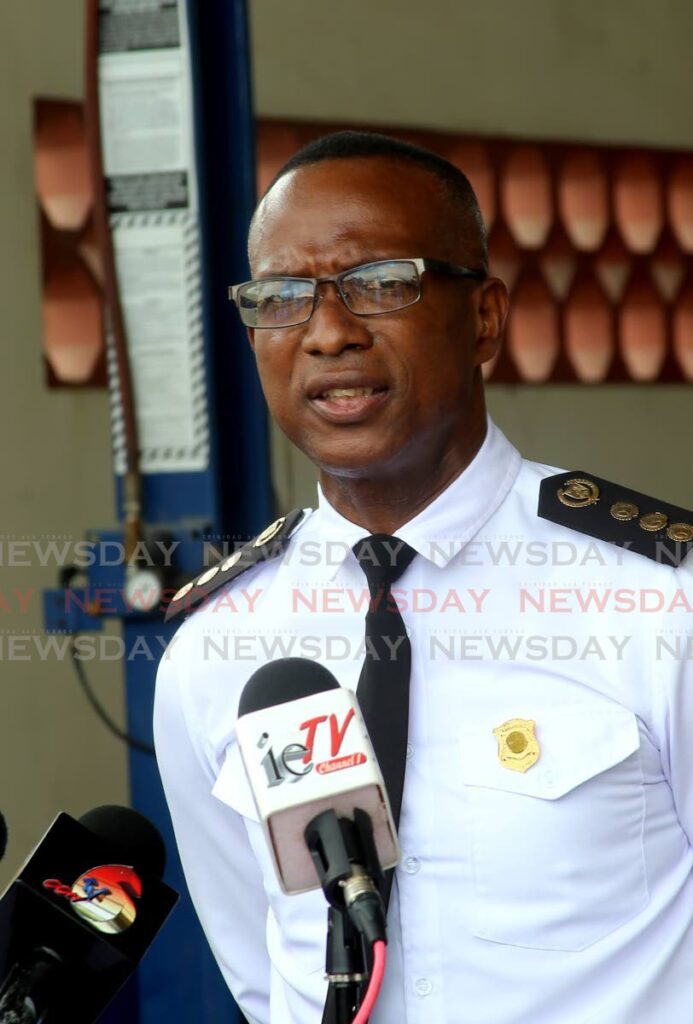Transport Commissioner: New number plate system will combat crime

TRANSPORT COMMISSIONER Clive Clarke October 25 said a new number plate system for registered vehicles could go a long way to addressing crime in the country.
He was addressing a virtual stakeholder consultation hosted by the Ministry of Works and Transport.
Clarke said despite previously touted changes included a switch to radio frequency identification (RFID) plates, the plan instead is to move toward video analytics and registered plate suppliers and manufacturers.
“There’s a growing concern of the number of vehicle related crimes, including fraud, theft and road safety violations. We know it necessitates a robust secure vehicle registration system and we are saying that we believe if we could fix the number plate challenges we have in Trinidad, we may be able to contribute significantly to the decrease in crime and other vehicle challenges.”
Clarke explained the new proposed plates will display the national flag along with QR codes and a unique logo displaying the name of the company registered to produce the plate.
Under the new rules, companies printing the plates and those supplying the materials for the plates will have to be registered with the Transport Division and failure to do so will result in fines and jail time.
He explained the design and software for the plates will be managed by the ministry, and companies can only access it to print a plate using a secure user ID and proof of registration information by the customer.
Clarke said this will allow the authorities to track how many plates are printed per day by each company and even identify the employee who printed the plate.
He emphasised, though, that regardless of the measures, criminals will always try to beat the system.
“Regardless of what type of security we place on a number plate, whether it is a chip, a hologram, a particular code, or a particular design, nothing stops anyone from taking a number plate from one vehicle and placing it on another vehicle. Nothing stops that.
“Likewise, nothing stops someone from making an attempt to make a number plate that looks like one that is real. Whatever design, whatever security you put in place, someone will always attempt to make something that is a lookalike.”
He explained this is why cameras will work in conjunction with the number plates, using artificial intelligence to identify cars by colour, make and model.
“Likewise, in the event someone tries to make a look alike, we should be able to also detect that. So we are saying we must implement systems and technology that can detect that and reduce the number of people trying to a lookalike feature.”
Clarke said the system will then flag plates that do not match the description of the vehicle it is registered to.
“We have to move away from having officers on the road. This new system can flag vehicles and help with enforcement. It will trigger a warning or alert to the relevant authorities who can then take the necessary action.”
In his presentation of the 2019/2020 budget on October 7, 2019 Finance Minister Colm Imbert said government would put in place a secure motor vehicle number plate system aimed at improving vehicle registration and removing all illegal licence plates by March 2020.He said, "Madam Speaker, we are supporting these initiatives by legislation through the proclamation by December 2019 of the Motor Vehicle and Road Traffic Act 2017."
He added, "With this proclamation, we will be able to implement several far-reaching technological advances to enhance our ability to identify and to prosecute errant motorists, including the use of speed spot cameras, red-light cameras, law enforcement officers using hand-held devices to issue electronic tickets, to pay traffic tickets through TT Post and to utilise an online payment system with penalties for late payment tickets and demerit points."

Comments
"Transport Commissioner: New number plate system will combat crime"